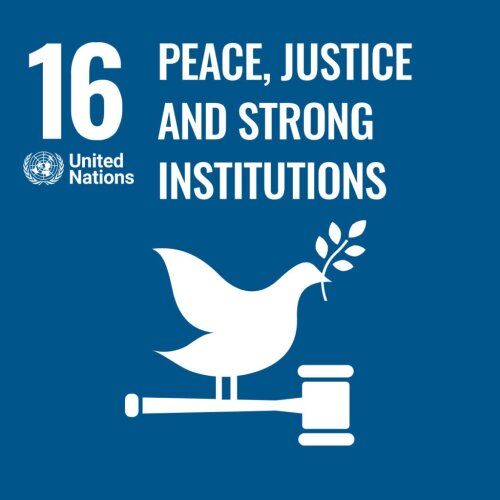Best Real Estate Contracts and Negotiations Lawyers in Port of Spain
Share your needs with us, get contacted by law firms.
Free. Takes 2 min.
Free Guide to Hiring a Real Estate Lawyer
List of the best lawyers in Port of Spain, Trinidad and Tobago
About Real Estate Contracts and Negotiations
Real estate contracts and negotiations form an integral part of property transactions. These contracts are legally binding agreements between parties involved in the purchase, sale, or lease of real estate. In Port of Spain, Trinidad and Tobago, the process involves careful consideration of various legal parameters to ensure compliance with local property laws and to protect the interests of all parties involved.
Law in Port of Spain, Trinidad and Tobago
In Port of Spain, Trinidad and Tobago, real estate contracts and negotiations are governed by a framework of local laws and regulations. This framework ensures that property transactions are conducted fairly and transparently. The legal process often involves the drafting and negotiation of contracts, which specify the terms and conditions of the transaction. Both parties need to have a clear understanding of these terms to avoid disputes and to ensure a smooth transaction.
Why You May Need a Lawyer
Legal experts in real estate are crucial during property transactions for various reasons. Some common situations where individuals may require legal assistance include:
- Understanding complex contract terms and conditions.
- Ensuring compliance with local real estate laws.
- Negotiating favorable terms and resolving disputes.
- Conducting due diligence to verify property titles and ownership.
- Addressing potential zoning or land use issues.
- Handling issues related to property taxes and fees.
- Facilitating financing and mortgage arrangements.
Local Laws Overview
Port of Spain, and more broadly Trinidad and Tobago, have specific laws influencing real estate contracts and negotiations. Key aspects include:
- Conveyancing and Law of Property Act: Establishes protocols for property transfer and ownership rights.
- Stamp Duty Act: Dictates the tax obligations pertinent to real estate transactions.
- Landlord and Tenant Ordinance: Governs rental agreements and the relationship between property owners and tenants.
- Registration of Title to Land Act: Provides for the formal registration of property titles, ensuring clarity in ownership.
- Financial Institutions Act: Regulates mortgage lending practices.
Frequently Asked Questions
What is a real estate contract?
A real estate contract is a legally binding agreement between two or more parties outlining the terms and conditions for a purchase, sale, or lease of property.
Do I need a lawyer for real estate transactions?
While it is not mandatory, having a lawyer can help ensure that all legal aspects of the transaction are addressed and can protect your interests.
What should I look for in a real estate contract?
Key elements include the legal description of the property, the purchase price, financing terms, closing date, and any contingencies.
What is due diligence in real estate?
Due diligence involves verifying property details, title status, and any legal or financial obligations related to the property to avoid potential issues.
How are property disputes typically resolved?
Disputes may be settled through mediation, arbitration, or legal proceedings in court, depending on the nature of the disagreement.
What are the tax implications of buying property?
Buyers may be subject to stamp duty and other taxes; consulting with a tax advisor or lawyer can provide clarity based on current laws.
How can zoning laws affect my property purchase?
Zoning laws dictate how land can be used; it's crucial to understand these to ensure intended property use is permissible.
What is the role of a real estate agent in transactions?
Real estate agents facilitate the buying and selling process by providing market insights, negotiating terms, and guiding through paperwork.
Can a foreign national purchase property in Trinidad and Tobago?
Yes, but there may be restrictions and possibly the need for government approval depending on the property’s size and type.
What is title insurance and do I need it?
Title insurance protects against future claims or disputes over property ownership. While not mandatory, it is recommended for added security.
Additional Resources
For further assistance and information, the following resources can be valuable:
- The Registrar General's Department for property registration inquiries.
- The Trinidad and Tobago Law Association for legal referrals.
- The Ministry of Planning and Development for zoning and land use guidance.
- Local legal aid clinics for affordable legal services and advice.
Next Steps
If you require legal assistance for real estate contracts and negotiations, consider taking these steps:
- Consult with a qualified real estate lawyer to discuss your specific needs and circumstances.
- Gather all relevant documents and information related to the property in question.
- Prepare any questions or concerns you have about the transaction.
- Consider reaching out to professional organizations or government agencies for guidance.
- Ensure clear communication with all parties involved in the transaction to prevent misunderstandings.
Lawzana helps you find the best lawyers and law firms in Port of Spain through a curated and pre-screened list of qualified legal professionals. Our platform offers rankings and detailed profiles of attorneys and law firms, allowing you to compare based on practice areas, including Real Estate Contracts and Negotiations, experience, and client feedback.
Each profile includes a description of the firm's areas of practice, client reviews, team members and partners, year of establishment, spoken languages, office locations, contact information, social media presence, and any published articles or resources. Most firms on our platform speak English and are experienced in both local and international legal matters.
Get a quote from top-rated law firms in Port of Spain, Trinidad and Tobago — quickly, securely, and without unnecessary hassle.
Disclaimer:
The information provided on this page is for general informational purposes only and does not constitute legal advice. While we strive to ensure the accuracy and relevance of the content, legal information may change over time, and interpretations of the law can vary. You should always consult with a qualified legal professional for advice specific to your situation.
We disclaim all liability for actions taken or not taken based on the content of this page. If you believe any information is incorrect or outdated, please contact us, and we will review and update it where appropriate.














